Journeys Guided by Sound
そもそもなぜキューバに行こうとしたのか。
それもまた当然音楽から。
当時活動していたNXSというバンド的な集団実験演奏グループのメンバーだった元オルケスタデラルスのDateGenさんから
ダンボール箱二箱分のラテン絡みのCDを借りていた中で1枚とんでもない作品を見つけた。
Why did I want to go to Cuba in the first place?
Because of the music, of course.
From DateGen, formerly of Orquesta de la Luz, who was a member of the band-like collective experimental performance group called NXS that I was active in at the time.
while borrowing two cardboard boxes of Latin-related CDs, I found one extraordinary piece.
いわゆるラテンジャズというジャンルにはなると思うが、
その2箱の中でも最もアフリカ度、つまり土着度が高いのだが洗練されたメロディー、
螺旋的でスムースなグルーヴ、音から受ける爽やかで透き通った印象、
高揚感があるのにひたすら穏やかで朗らか。
その当時も多少はいろんな演奏をレコードやCDから聴いていたが、
例えばプログレッシブロックなどにある技巧の匠さ、を見せつけるのとは違う、表現の自然さ。
I think it falls into the so-called Latin jazz genre,
it is the most African, or indigenous, of the two boxes, but it has a sophisticated melody,
a spiraling, smooth groove, a fresh, clear impression from the sound,
and it is uplifting, yet calm and cheerful.
At that time, I had listened to various performances on records and CDs, but
the naturalness of expression was different from the mastery of technique shown in, for example, progressive rock.
何故ここまでの傑作が出来上がるのか検索した結果、
このCDのバンド名『Los Terry : Terry一家』という名が表すように
それはファミリーバンドだという理由が大きいのだと思う。
家族での演奏。ありそうであまりないケースだと思うし、
そのまさに親近感は演奏者をリラックスさせ、競争とは違う、
融和のレベルを高める。
After searching for the reason why this CD is such a masterpiece,
as the name of the band on this CD, “Los Terry : The Terry Family,” suggests,
I guess that’s largely because they are a family band.
A family performance. I think this is an unlikely case,
That very intimacy relaxes the performer, and it’s not like a competition,
increase the level of harmony.
ジャズを筆頭にインプロビゼーション、即興演奏はどこかバトルな側面を持つことが多いが、
ここでのそれは違う。
純粋にそれぞれが支え合い、演奏してることを楽しみ、お互いの表現を高め合う。
Improvisation, especially in jazz, often has a somewhat battling aspect to it,
but this was not the case here.
Each member genuinely supports the other, enjoys playing, and enriches each other’s expression.
改めてこの文章を書きながらそのCDを聴き直しているのだが、涙が出そうになる。
そうここにあるのは『理想』なのだ。
家族で演奏するということから、人間の最小限の社会構成の成功の『夢』を見る。
I’m listening to the CD again as I write this, and I feel like I’m about to cry.
Yes, what is here is an “ideal”.
From the family performance, I see the “dream” of success of the minimum human social structure.
音楽は時に、達成不可能な夢を僕らに想像させてくれる。
Music can sometimes make us imagine unattainable dreams.
達成可能か達成不可能かは0か100ではない。1%でもあればそこには可能性は『ある』のだ。
It’s not 0 or 100 whether it’s achievable or unachievable; if it’s even 1%, there’s a possibility.
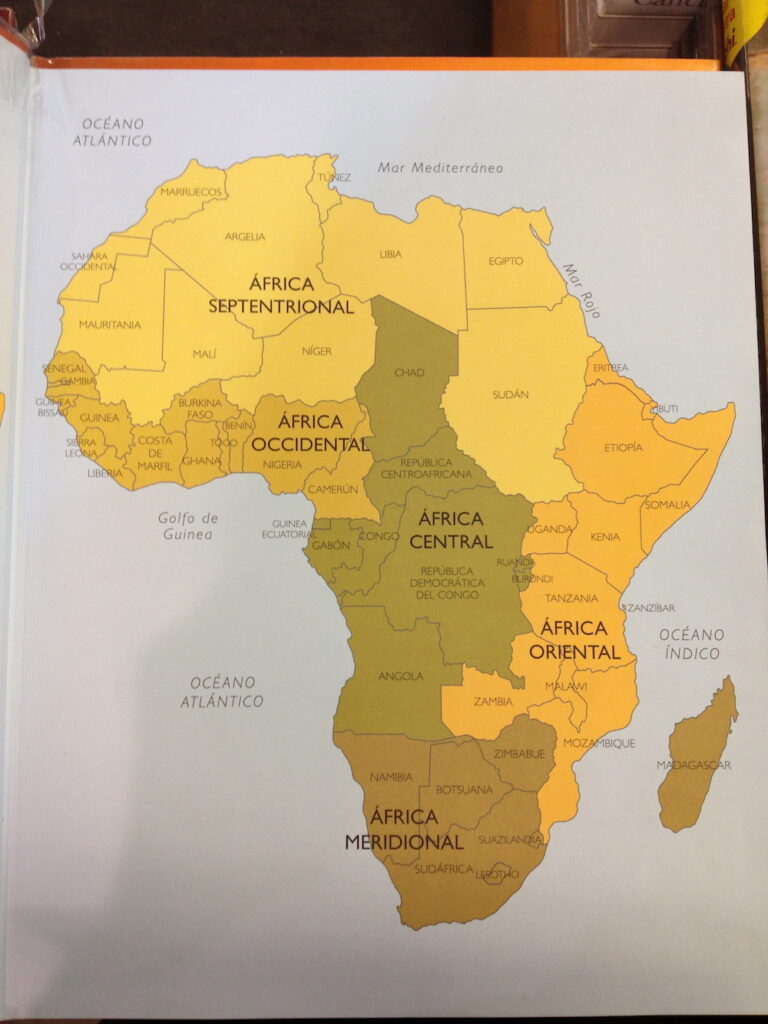
そしてこの作品から聞こえるどこか呪術的なムードから『アフリカ』を強烈に想起させる。
まだこの時点では自分の中でアフリカは遠い彼方だった。CDのタイトルにあるように
『From Africa to Camaguey』とはアフリカで奴隷として拉致され、強制的に連れて行かれたキューバの
カマグエイという町に住む自分たちを肯定しているようにも思える。
The spellbinding mood of the film reminded me of “Africa”.
At this point in my life, Africa was still far away from my mind. As the title of the CD says,
“From Africa to Camaguey” seems to be an affirmation of our lives in the town of Camaguey, Cuba,
where we were kidnapped as slaves in Africa and forcibly taken.
そのタイトルからキューバにいるアフリカ系の人たちが背負う悲しく辛い記憶が蘇る。
キューバに限らず、カリブの島々は勿論、全米に約3世紀にわたる奴隷貿易によって送還された人たちの数は最低でも1200万人(1700万とも2000万人とも)にも及ぶ。
The title brings back sad and painful memories of the African-American people in Cuba.
The number of people repatriated through the slave trade over the past three centuries is at least 12 million (some say 17 million or 20 million), not only in Cuba, but also in the Caribbean islands and throughout the United States.
中学生の時に聴いたPublic Enemyというニューヨークのグループの作品から
アフリカ系の人たちの人種差別根深い環境からくる葛藤は感じていたが、
この作品にあるのはその『怒り』とは明らかに違う。
When I was in junior high school, I listened to the work of a New York group called Public Enemy,
and I could sense the struggles of people of African descent due to their deeply rooted racist environment,
but this work is clearly different from that “anger”.
それはなぜかというと、キューバという国家の成り立ちとアメリカのそれとの違いだろう。
The reason for this may be the difference between the origins of the Cuban nation and that of the United States.

The movement called socialism is
personally, I think it’s called Islam
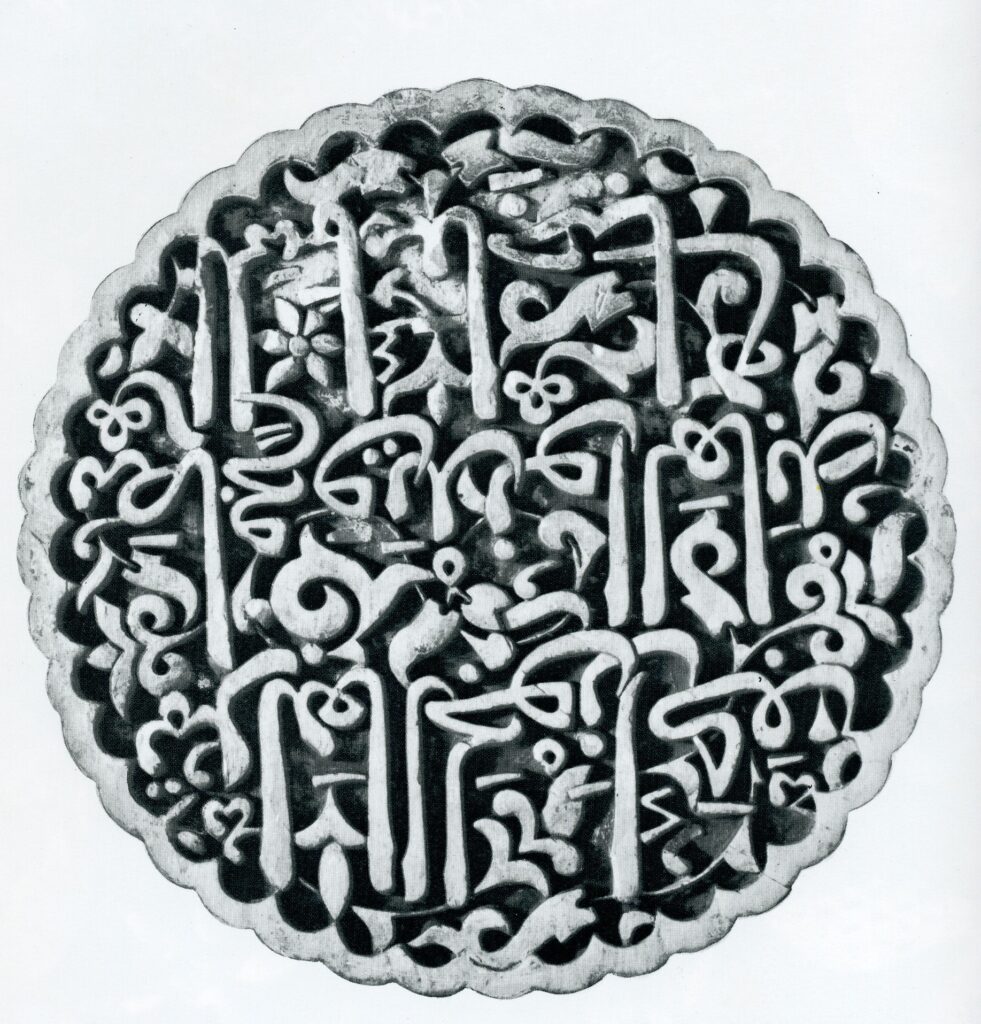
1500年前に起きたムーヴメントの神性を無くしたものな印象もあるが、
このキューバという国が他の社会主義諸国と大きく違う点は
カソリック系キリスト教を支持している点だと思う。
つまりバチカンと繋がっているということで
それはこの政治社会状況の中では強い後ろ盾がある、ということなのだと思っている。
I get the impression that this is a less divine version of a movement that happened 1500 years ago
what makes this Cuba very different from other socialist countries is that
I suppose that’s the point of supporting catholic Christianity.
In other words, it’s connected to the Vatican.
I believe this means that they have a strong backing in this political and social situation.
バチカンのその歴史的「闇」に関してはそれぞれゼヒ調べてほしいが、
ともかくスペインが植民地政策の一環で作り上げたこの国家は、
当然以前から住んでいたインディオ達から何もかもを奪い、勝手に作り上げた若い国家で、
その王国や財閥からの社会主義国家としての離脱は、
日本など歴史的にも民族、政治的にも重層的な国家とは明らかに違う状況で、
簡単に言えば、『しがらみ』が無く、「革命」しやすかったのだと思う。
As for the Vatican’s historical “darkness,” please check it out for yourself,
but anyway, this nation was created by Spain as part of its colonial policy,
of course, it was a young nation that had been created on its own, taking everything from the Indians who had lived there before,
and its secession from its kingdoms and conglomerates as a socialist state,
the situation is clearly different from that of a historically, ethnically, and politically multi-layered nation like Japan,
simply put, there were no “ties”, and it was easy to have a “revolution”.
しかし、このキューバ革命に感化された南米は勿論、アジア、アフリカ、中東まで世界中の、
特に若者たちは各地でそのムーヴメントを起こし、
そしてその多くは夢半ばに、その理想と現実の「しがらみ」のなか、散っていった。
However, inspired by the Cuban Revolution, young people, especially from South America, Asia, Africa, and the Middle East, started movements in various parts of the world,
and many of them scattered in the midst of their dreams, amidst the ” ties ” between their ideals and reality.
あと、その「しがらみ」という部分でラテンアメリカなどは端的に、
例えば日本においても沖縄からのブラジル植民政策で、
筆頭になるのは次男、三男でそれはヨーロッパ諸国のアメリカへの入植状況と一緒で、
長男は跡を継ぎ、次男以降は、どこかで稼いでこい、という略式となるんだと思う。
勿論アメリカ全土に入植した長男もいると思うが(笑)、
あのアメリカ全土に漂うお気楽感は、明らかに長男的な硬さがなく、どこか朗らかに感じる。
Also, in terms of “ties,” in Latin America and elsewhere, I think the short form is
that the eldest son takes over, and the second and subsequent sons go off and make money somewhere else.
In Japan, for example, in the policy of colonizing Brazil from Okinawa,
it was the second and third sons who were the first to go, just like the situation of European countries settling in the United States.
Of course, I’m sure there are first-born sons who have settled all over the U.S. (lol),
but that sense of ease that pervades the U.S. makes me feel somewhat cheerful, without the obvious first-born stiffness.
尚且つ南米はカソリックの影響が当然強く、
カーニバルという
お祭り?の制度は、その国家の世風としてとても重要な要素になっていると思う。
それは同じキリスト教の亜流?プロテスタントには無い、重要な文化的違いだと思う。
In addition, South America has a strong catholic influence,
and the system of festivals called carnivals
is a very important factor in the national culture.
It is a very significant cultural difference that the same Christian subculture? that Protestants do not have.
そんなキューバにはおそらく西アフリカからの奴隷が多く、荷のように運ばれ、
そのアフリカからの伝統の継承は既に1200年前には日本における仏教の如く、
イスラムは根付いていたはずで、決して未開の部族というイメージだけでなく、
その多面的な文化的背景、特に音楽のスタイルがキューバには確実に保存されている。
また、先述したカソリックとプロテスタントの違いの一つで、
カソリックは奴隷であるインディオやアフリカンと、特に女性と性的に交わり、
その出来た混血児(現地ではムラートと言われる)を我が子として育てることも多いが、
プロテスタントはそれをほぼしない。強制的なレイプがあったとしても、
宗教的価値観のもと、それを表立ってできない。
Many slaves from West Africa were probably brought to Cuba like cargo,
and the inheritance of traditions from Africa must have already taken root in Islam 1200 years ago, just like Buddhism in Japan.
It is not only the image of an uncivilized tribe,
but also its multifaceted cultural background, especially its musical style, that has been preserved in Cuba.
In addition, one of the aforementioned differences between Catholics and Protestants is
that Catholics often have sexual intercourse with Indians and Africans who are slaves, especially with women,
and raise the resulting mixed-race children (known locally as mulattoes) as their own children,
while Protestants almost never do so.
Even if there is forcible rape, they cannot do it openly under their religious values.
その結果、カソリックはその家族が持ってきたアフリカやインディオの文化も取り入れることになる。
象徴的なのは太鼓で、北米はそのプロテスタントの傾向により、奴隷たちに太鼓を叩かせなかった。
その結果、北米にはいわゆるパーカッシブな楽器は、実際ドラム以外はあまり登場しないことになる。
それに引き換え、南米のパーカッション系音楽の芳醇なことと言ったらない。
もはやアフリカよりもパーカッションの種類が多様になっていったのは、インディオ、そしてヨーロピアンの文化が入り混じった結果だろう。
As a result, catholics also adopted the African and Indio cultures that their families brought with them.
Symbolic of this was the drum, which North America, due to its Protestant tendencies, did not allow its slaves to play.
As a result, there were few so-called percussive instruments in North America, except for the actual drums.
On the other hand, the percussion music of South America is very rich.
The variety of percussions in South America has become more diverse than in Africa, probably as a result of the mixture of Indians and European cultures.
そんな文化的背景にあるキューバの音楽は、それはそれは魅力的で、とろける「夢」の様な世界だ。
With such a cultural background, Cuban music is a fascinating, melting “dream” world.
そう、先述したCDの話でも出た『夢』がまたキーワードになる。
その『夢』とは寝ているときに観るそれではなく、
明確な意志による理想の形なき形だと思うが、
その社会主義革命の成功は『夢』を成し遂げているその『現実』であり、
僕らが住むこのような国家では持ちづらい、持っていたとしても、
それはその世間では嘲笑されるような、あやふやなもので、
不確かで、現実味のないものとされるものだ。
Yes, the key word again is “dream,” which I mentioned earlier in the CD discussion.
The “dream” is not what we see when we are asleep,
but the unformed form of an ideal with a clear will.
However, the success of the socialist revolution is the “reality” of achieving the “dream”,
which is difficult to have in a country like this where we live, and even if we had it,
it would be something that would be ridiculed by the world, something vague,
uncertain, and unrealistic.
しかしキューバでは違う。
『夢』とは『現実』に限りなく近いもので、努力さえすれば成し遂げられるもの、という認識になる。
In Cuba, however, it’s a different story.
The dream is perceived as something that is as close to reality as possible, something that can be achieved if you work hard enough.
これは大きな違いだと思うし、その「現実」感は国民の中にある人生観に大きな影響を及ぼしたのは間違いない。
とにかくキューバは基本人生に楽観的なのだ。
その楽観性は南国の風土が醸し出したものでもある。
インディオ、アフリカン、そしてヨーロピアンそれぞれがそこまで到達した道のりが決して楽なものではないことが想像される時代。
飛行機は当然なく、いづれの立場にしろ、その旅路で息絶えたものも多いだろう。
つまり相当タフな人達が、そこに集結するわけで、
あのアメリカ大陸が持つあのパワフルな波動は、結果まさにその楽観性となる。
生き残ってきた自信。
I think this is a big difference, and that sense of “reality” has definitely had a big impact on the people’s outlook on life.
Anyway, Cubans are basically optimistic about life.
This optimism is also a result of the tropical climate.
It was a time when one could imagine that the journey that Indians, Africans, and Europeans took to get there was not an easy one.
There were no airplanes, and many of them would have died on the journey,
whichever side they were on, which means that a very tough people would have gathered there,
and the powerful vibrations of the American continent would have resulted in that very optimism.
The confidence that has survived.
そして話を戻し、なぜキューバに行こうとしたのか、
そのもう一つのきっかけは『サンテリア』という音楽になる。
And back to why I decided to go to Cuba,
another reason would be the music called “Santeria“.
そして先述したCDにもその影響が濃いので、それが核心になるのだと思う。
要はアフリカの儀式的音楽、もしくは音楽的儀式に惹かれたということになる。
それは世間のイメージとしてはブードゥーと言われる、実際にはキューバの隣国ハイチのアフリカ系のソレに近い形態なのだが、
やはりフランス植民地とスペイン植民地の違い?もしくはアフリカの出身地の違いなのか、
明らかにグルーヴ感が違う。
And since the aforementioned CD has such a strong influence, I think that is the core of it.
The bottom line is that I was attracted to African ritual music or musical rituals.
The image that people have of it is that it is voodoo, which is actually a form similar to the African voodoo of Haiti, Cuba’s neighbor.
However, whether it is the difference between the French and Spanish colonies, or the difference in African origins,
the groove is clearly different.
それは時に、というかほぼ必ずニワトリを祭事中に絞めたり、実際生臭いものではあるのだが、
それがまた当然生々しい生命の息吹を感じさせてくれることにもなる。
僕は実際には1回その儀式を観覧?させてもらい、そして
その『サンテリア』という儀式を奉納演奏する若い集団とレコーディングをすることが出来た。
Sometimes, or almost always, chickens are strangled during the rituals, which is actually fishy,
but it also makes you feel the freshness of life.
I was actually allowed to watch the ceremony once, and
record with a group of young people who perform the “Santeria” ritual as a dedication.
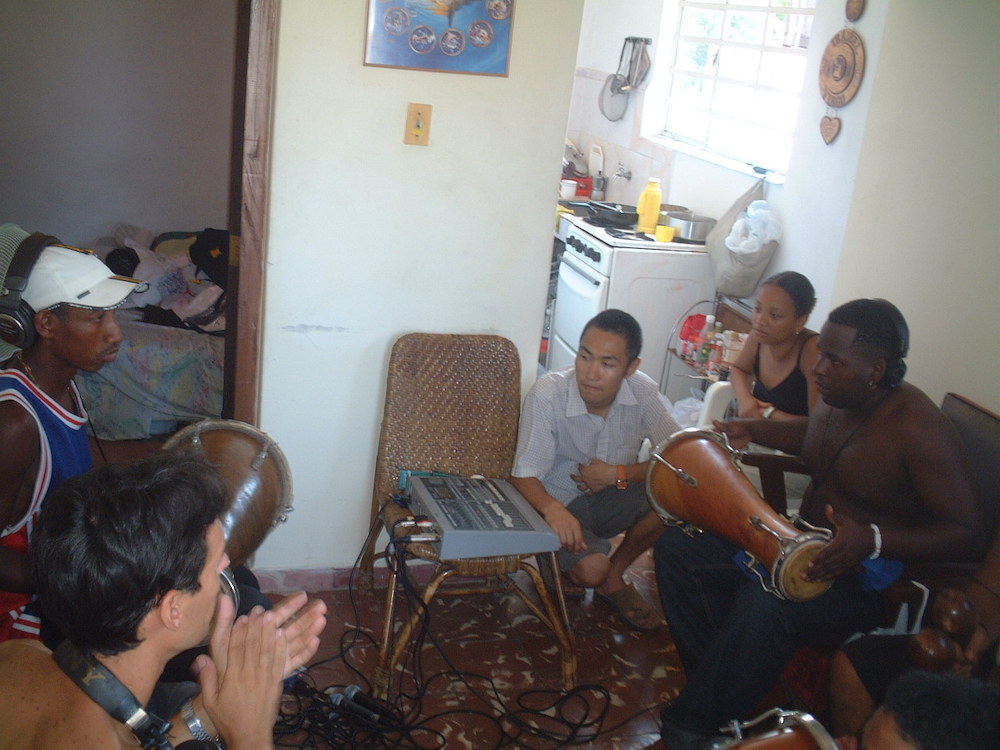
実際の祭事のレポートとして、あれは夏のキューバの、
まるで僕らにも多少馴染みがあるであろう『お盆』におけるお坊さんの念仏に近い、
というかほぼ一緒で、その家庭が何かしらの用があり、
例えば邪気払いのようにその場をクリーンにしたいとなれば、彼らにお金を払って、演奏してもらい、
実際その家族も一緒になって踊り、というか目の前で白目を剥いてブッ倒れたりするのを見た。
しかしそれを文面に起こすとなんだかオカルティックだが、実際は昼間っから
(相当うまい、しかし安い)ラム酒をみんなでガンガン回し飲みし、
その儀式が終わったらさっきまで白目剥いてぶっ倒れていたオバさんが、
ラジカセから流れるサルサでみんなで楽しそうに踊っているのを見ると、
さっきの件がまるで軽い貧血で倒れたかのように軽やかに、朗らかに、
日常の一つとして組み込まれているのは、なかなか興味深いと思った。
As a report of the actual festival, it was just like a monk’s memorial service in summer in Cuba.
It’s almost like the monk’s recitation of the Buddha during the Obon festival, which we may be somewhat familiar with.
I mean, it’s almost the same.
If the family has some kind of business and wants to clean up the place, for example, to get rid of evil spirits, they pay them to perform, and the family actually joins in.
In fact, I saw the family dancing with them, or rather, falling down with the whites of their eyes right in front of them.
However, when I put it in writing, it sounds somewhat occultic, but in reality, from the day time,
began to drink rum, which was quite good, but cheap,
when the ritual was over, the old lady, who had just collapsed with her eyes white, was
dancing happily to the salsa playing on the boom box,
it was as if she had just suffered from a mild anemia,
I thought it was quite interesting that it was incorporated as a part of daily life.
音楽でダンスして、いわゆるトランス状態になり、『何か』を憑依させ、
それに語らせる呪術もこのサンテリアには重要な要素で、
西アフリカ最強/最狂の国?ナイジェリアの神話的宗教形態でもあり、
民族の名前でもあるヨルバの神々の名前が、サンテリアには多く登場するし、
その形態はキューバならではな楽器のアンサンブルになってはいるが、
やはりアフリカ度は相当高い。
Dancing to music, going into a so-called trance, conjuring ‘something’ to possess you,
and letting it speak to you are also important elements in this Santeria.
The names of the Yoruba gods, the mythical religious form and ethnic name of Nigeria, the strongest and most crazy country in West Africa, appear in many of the Santeria,
and although the form is an ensemble of instruments unique to Cuba, it is still very African.
バタドラムと言われる両面太鼓の大中小の3者の複雑に絡み合うコンビネーションは、
螺旋的としか言えない、美しいグルーヴで、個人的に相当影響を受けたし、
また最初から共感できた世界観だった。
The intricate combination of three large, medium, and small double-sided drums called “bata drum” ,
it’s a beautiful groove that can only be described as spiraling, and I was personally influenced by it,
and it was also a worldview that I could relate to from the beginning.
螺旋というのはDNAを含めて、永遠性のある連続した形状をイメージさせる。
The word “spiral” conjures up images of eternal, continuous shapes, including DNA.
つまり究極に限りなく近いもの。もしくはそれなのかもしれない。
In other words, something as close to the ultimate as possible. Or maybe that’s it.
前回お話ししたエウディスとのレコーディング後の呑みの席になったバーは
まるで西部劇に出てくる酒場のような場所で、目の前はまさに砂埃が舞うような土の道で、
僕らのいる店のジュークボックス?から流れる音楽に合わせて15歳前後の男女が
汗だくになりながらも、目は真剣に踊りまくる。
その数組のダンサー達を見ているとまた螺旋を感じるのだ。
例えば15歳前後といえばある意味生殖可能な年齢になる若い男女のダンスは、
セックスよりも高い快楽がそこにあることを彷彿とさせた。
ある意味、今風に言えば(笑)生産性の無いことで、
彼らはそれを凌駕する『意味』を感じているのだとも思った。
The bar where we were drinking after the recording session with Eudis that I mentioned last time
was like a bar in a western movie, with a dusty dirt road in front of us.
A man and a woman of about 15 years old were playing music from the jukebox? in the store we were in,
and they were sweating and dancing earnestly to the music.
As I watched those several groups of dancers, I felt that spiral again.
For example, the dance of young men and women who are around 15 years old, which is in a sense a reproductive age,
reminded me that there is a higher pleasure there than sex.
In a way, in a modern way lol, it’s unproductive,
I also thought that they felt a ‘meaning’ that surpassed it.
生きることはただ生殖することだけが目的ではない。
人間は、もしかしたら他の生命体も含めてかもしれないが、生きる意味を持とうとする。
それは人ぞれぞれかもしれないが一つ言えるのは存在を知覚できる五感からくる情報から『現実』を直視して、それぞれが死ぬまでの間、やれることをやっていくしかない。
果たして、この世界になんの生きる価値があるのだろうと思った時に、
個人的には音楽に活路を見出したのだが、
このダンサー達の光景に、まさに哲学的な美を感じてしまったのだ。
Life is not just about reproduction.
Humans, and maybe other life forms as well, try to have a meaning to life.
It may be different for each person, but one thing I can say is that we have to face “reality” from the information coming from the five senses that can perceive existence, and do what we can do until we die.
When I wondered what the value of life was in this world,
I personally found a way through music,
and the sight of these dancers gave me a sense of philosophical beauty.
『現実』の意味を、『夢』のような景色の中。
The meaning of “reality” in a dreamlike landscape.
あらゆる人種が『可能性』を持つという『理想』を掲げた場所で。
In a place that upholds the “ideal” that all races have “potential”.
<つづく>
<To be continued.>
追伸
これらのキューバでのレコーディングを経て、
自分のリアリティーと重ねて作った作品がこちらになります。
https://crosspointproception.bandcamp.com/album/momentos
P.S.
After these recordings in Cuba,
here is the work that I created by overlapping my own reality.
https://crosspointproception.bandcamp.com/album/momentos
文中にある『サンテリア』のレコーディングはこの2曲に納めています。
The recording of “Santeria” in the article is contained in these two tracks.
https://crosspointproception.bandcamp.com/track/jascadeiro
https://crosspointproception.bandcamp.com/track/lugar-precioso
是非この機会に聴いて頂けたら幸いです。
そしてレーベルCROSSPOINTの誕生と軌跡を感じて頂けたら。
I hope you will take this opportunity to listen to it.
I hope you can feel the birth and history of the CROSSPOINT label.
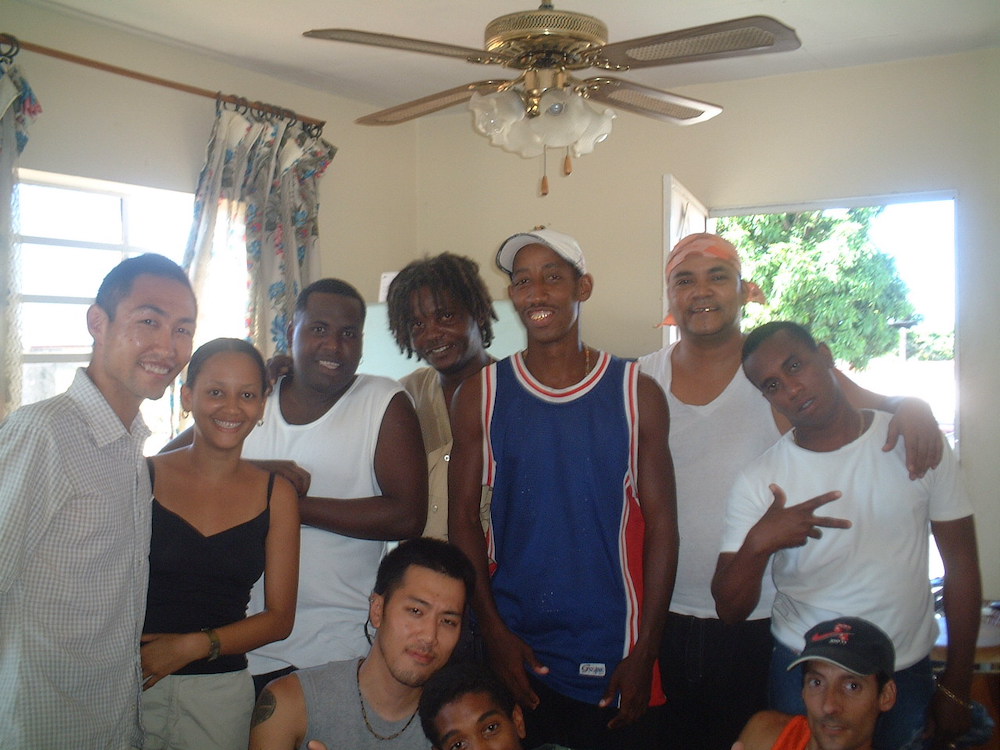
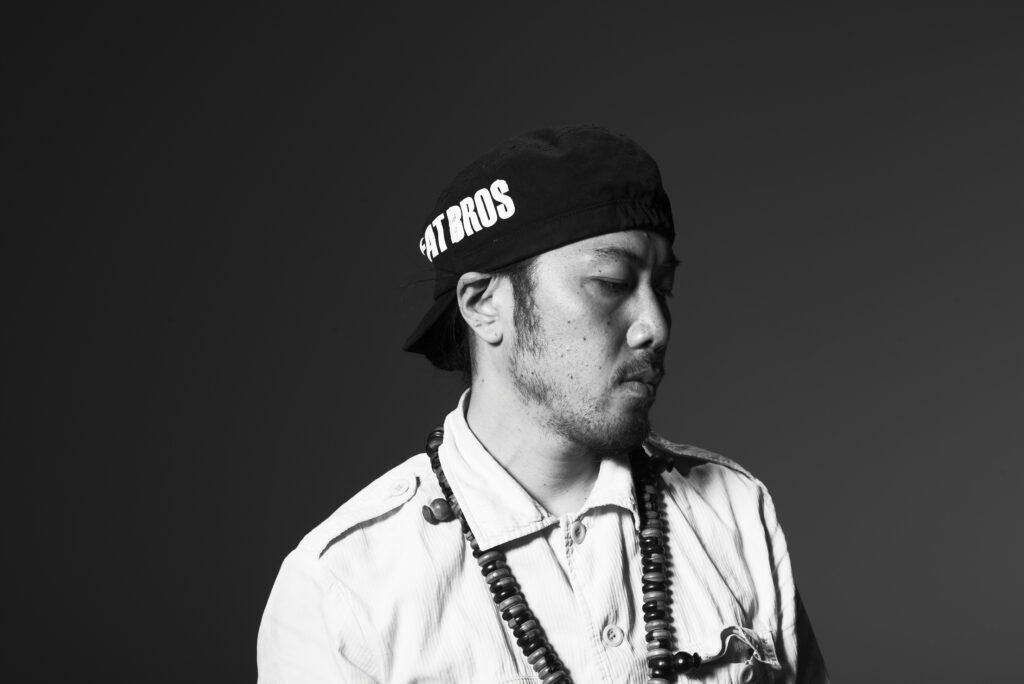
J.A.K.A.M. (JUZU a.k.a. MOOCHY / NXS /CROSSPOINT)
http://www.nxs.jp/
soundcloud / Bandcamp / Twitter / Facebook
東京出身。15歳からバンドとDJの活動を並行して始め、スケートボードを通して知り合ったメンバーで結成されたバンドEvilPowersMeの音源は、結成後すぐにアメリカのイラストレイターPusheadのレーベル等からリリースされる。DJとしてもその革新的でオリジナルなスタイルが一世を風靡し、瞬く間に国内外の巨大なフェスからアンダーグランドなパーティまで活動が展開される。 ソロの楽曲制作としても米Grand RoyalからのBuffalo Daughterのリミックスを皮切りに、Boredoms等のリミックス等メジャー、インディー問わず様々なレーベルからリリースされる。2003年にキューバで現地ミュージシャンとレコーディングツアーを敢行したのを皮切りに、その後世界各地で録音を重ね、新たなWorld Musicの指針として、立ち上げたレーベルCrosspointを始動。
音楽制作のみならず、映像作品、絵本や画集 のプロデュース、2012年には野外フェスOoneness Camp”縄文と再生”を企画するなど活動は多岐に渡るが、 2015年から始まった怒濤の9ヶ月連続ヴァイナルリリースは大きな話題になり、その影響でベルリン/イスラエルのレーベルMalka Tutiから新作がワールドワイドにリリースされる。2017年にはDJ TasakaとのHIGHTIME Inc.、2018年にはNitroMicrophoneUndergroundのMACKA-CHINとPART2STYLEのMaLとのユニットZEN RYDAZの活動もスタート。
同年、J.A.K.A.M.名義の楽曲がフランスのレーベルHardFistからアナログリリースされた流れで3万人の巨大フェスNuits Sonores Festivalでのライブを皮切りにヨーロッパ、イスラエル等のDJツアーが敢行される。そして2019年、世界的な支持を受けるMinilogue/Son KiteのMarcus HenrikssonとKuniyukiとのユニットMYSTICSの制作が始まり、今年2021年、待望のアルバムがリリースされるなど、そのオリジナルなヴィジョンがあらゆるジャンルをまたぎ、世界に広がっている。
Born in Tokyo, he started playing in bands and DJing at the same time when he was 15. As a DJ, his innovative and original style has taken the world by storm, and his activities have quickly expanded from huge festivals to underground parties both in Japan and abroad. In 2003, he went on a recording tour with local musicians in Cuba. In 2003, he went on a recording tour with local musicians in Cuba, and since then he has been recording all over the world, and started his own label, Crosspoint, as a new guideline for world music.
In addition to music production, he also produces video works, picture books and art books, and organized the outdoor festival “Jomon and Rebirth” in 2012. In 2017, he released HIGHTIME Inc. with DJ Tasaka, and in 2018, he released ZERO with MACKA-CHIN of NitroMicrophoneUnderground and MaL of PART2 STYLE. In 2018, he also started the unit ZEN RYDAZ with MACKA-CHIN of NitroMicrophoneUnderground and MaL of PART2STYLE.
In the same year, his music under the name of J.A.K.A.M. was released in analog form on the French label HardFist, which led to a live performance at the huge 30,000-person Nuits Sonores Festival, followed by a DJ tour of Europe and Israel. In 2019, the production of MYSTICS, a unit with Marcus Henriksson and Kuniyuki of the internationally popular Minilogue/Son Kite, began, and this year, 2021, the long-awaited album will be released. His original vision is spreading all over the world, crossing all genres.
He has been behind the decks at home and abroad with:
Acid Arab (FR) / Adam Ffreeland (UK) / Alex Patterson (The Orb, UK) Andy Baz (Background Records, Germany) / Asaf Sammuel (islael) / Dego (4Hero, UK) / Fabio (UK) / Francois K (NY) / Fred P(NY) / Foolish Felix (UK) / Grooverider (UK) / I.G.Culture (People, UK) / Jeff Mills (Chicago) / Joe Claussell (NY) Nick the Record (UK) / Moodyman (Detroit) / Panasea (Germany) PHOTEK (UK) / Storm(MetalHeadz, UK) / Suv (Fullcycle, UK) / Q-Bert & Inbisibl Skratch Piklz, Mix Master Mike with D-Styles, Yogafrog and Shortcut (US) / Theo Parrish(Detroit) / Terre Thaemlitz (US/JPN) / Tom Wieland (Vienna) /DJ KRUSH (JP) / Flying Lotus(US)/ / Boredoms (JP) / FAUST (Germany) / Dennis Bovell(UK) / Dillinger Escape Plan (NY) / Juno Reacter (UK) /Lee Perry (Jamaica) / LKJ (UK) / Lake Trout (US) / Mad Proffesor (UK) / Mala (UK) / Marcus Henriksson(SW) / Meat Beat Manifesto (UK) / Merzbow , MMW (US)/ Yakaza Ensemble(Turkey) etc. His style keeps evolving and defies categorization.
校正・英訳:編集部 中村、池上
Proofreading and English translation: Editorial department Nakamura, Ikegami